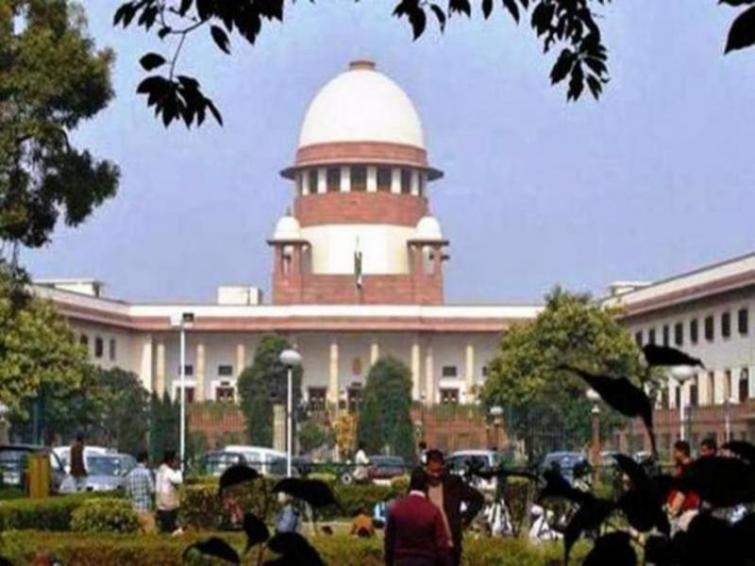SC refuses urgent hearing of plea challenging RBI's exchanging Rs 2,000 notes without any ID proof

New Delhi/UNI: The Supreme Court's vacation bench on Thursday refused to entertain the appeal filed by lawyer Ashwini Kumar Upadhyay seeking an urgent hearing of his petition challenging the RBI's permission (order) for exchanging Rs 2,000 currency notes without any identity proof.
The Apex Court bench, however, asked him to mention the matter before the Chief Justice of India after vacations.
Upadhyay had moved the Supreme Court and filed the appeal before it, challenging the Delhi High Court's May 29, order, which had dismissed his PIL.
Upadhyay had initially filed the PIL in the Delhi HC challenging RBI's notification of May 19 and SBI's of May 20, allowing an exchange of Rs 2000 currency notes without any identity slips. But he did not get any relief from it.
Upadhyay pleaded to the Supreme Court's two-judge vacation bench, headed by Justice Sudhanshu Dhulia and also comprising Justice K V Vishwanathan, for an urgent hearing into his PIL, stating that there is a notification about RBI and SBI that Rs 2,000 currency note can be exchanged without identity proof.
"This is manifest arbitrariness. All the black money by drug mafias, smugglers, murderers is being exchanged. no requisition slip etc needed. Rs 50,000 crore has been exchanged in 3 days. This is happening for the first time in the world," Upadhyay told the Supreme Court.
Justice Dhulia, however, refused his plea for an urgent hearing, and said, sorry we are not entertaining these petitions during the vacation. Please mention before the Chief Justice of India, after summer vacations.
Upadhyay, after this, thereby sought an urgent hearing of his appeal and said, till then all black money will become white money.
Delhi High Court in its order on May 29, had dismissed the PIL filed by advocate Ashwini Kumar Upadhyay, challenging RBI's notification of May 19 and SBI's of May 20, allowing the exchange of Rs 2000 currency notes without any identity slips.
Upadhyay had filed the petition in the Delhi High Court challenging the decision of the Reserve Bank of India (RBI) and State Bank of India (SBI) to allow people to exchange Rs 2,000 banknotes without submitting any identity documents or filling up a requisition form.
The Delhi High Court did not find any merit in Upadhyay's petition and thereby dismissed it.
The Delhi High Court bench led by Chief Justice Satish Chandra, who had reserved its order last week on May 23 after hearing from Upadhyay and RBI, pronounced the order on May 29 on Upadhyay's plea.
Appearing in person, lawyer Upadhyay filed the plea and claimed before the Delhi High Court that the notifications issued by the RBI and SBI in this regard are arbitrary, irrational and offend Article 14 of the Constitution of India.
Appearing for RBI, senior advocate, Parag Tripathi, had told the bench of the Delhi High Court to dismiss the plea on the ground that the constitution bench of the SC has time and again reiterated that they cannot interfere in the nation’s economic policies.
Tripathi further argued before the Delhi High Court that withdrawing Rs 2,000 notes is not demonetisation but a statutory exercise, hence it is not a public issue.




